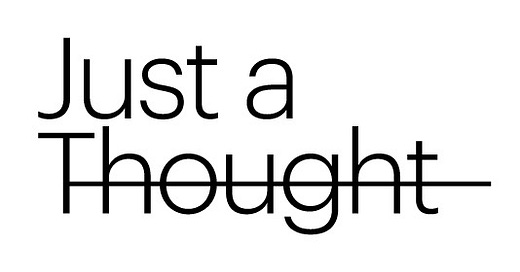A couple weeks ago I settled in to watch Horizon: An American Saga - Chapter 1 on Netflix.
Pressing “Play” felt like a fool’s errand. (And with a runtime of 3 hours, 1 minute, it felt like a fool’s errand that would require some stamina.) I’d listened to Matthew Beloni of The Town podcast, repeatedly lampoon what a folly this movie was. Kevin Costner had put in a lot of his own money to get the $100 million production made, and all the forecasts held that it would bomb at the box office. And bomb it certainly did, bringing in $11 million on its opening weekend. If that wasn’t enough, Horizon - Chapter 1 had a 51% score on Rotten Tomatoes and a 49% on Metacritic.
Still, I was curious. So, over the course of two nights, I watched.
And I really liked it.
I thought it did a good job of weaving together a compelling narrative with overlapping points of view. I thought it showed the power of the Western—a uniquely American form of cinema that continues to endure. I thought the production values and sets were—at the risk of sounding grandiose—majestic.
But I’m not writing this to convince you to watch Horizon. I write to highlight the folly of blindly following the takes of others. For all the talk of how there’s no more monoculture because we live in niche bubbles, a certain set of opinions still tends to rise to the top (e.g. Horizon is a bad movie). Then people adopt those opinions as their own, even if they don’t have any first-hand knowledge.
This feels especially true in New York, where people know what the “it” restaurants/books/movies/bands/fashion labels are, even though most never eat/read/see/hear/wear the item in question. Even for those who do experience these items, there can be a certain peer pressure to make their opinion hew to the norm.
We live in an age when influencing people’s opinions is big business. But your tastes are what make you, you. So don’t toss away your agency for critical thought to hop on the critical mass bandwagon. If everyone’s talking about something, by all means, go out and try it. But don’t like it (or hate it) because everyone else does. Like it (or hate it) because you actually like it (or hate it).
And if you disagree with everything I’m saying? Congrats. I’m psyched that you’ve got your own take that isn’t influenced by mine.
The Last Waltz
With the recent passing of Garth Hudson, talk in my college friend group chat turned to The Last Waltz, Martin Scorcese’s documentary about The Band’s final concert. I’ve seen it a couple times, but rewatched it again, and it affirmed my believe that you’d be hard pressed to find a better concert film. —Justin
SI Photographer Heinz Kluetmeier’s Eye for the Iconic Made Him One of a Kind
Hope I’m not getting too morbid, but this was also prompted by the passing of a legend. Heinz Kluetmeier was an incredible Sports Illustrated photographer who famously captured the image that became the “Miracle On Ice” cover as well as the underwater photo of Michael Phelps winning the 100m butterfly by .01 seconds at the 2008 Olympics. I was lucky enough to work with Heinz on a couple of assignments, and he always exuded this amazing curiosity that we should all aspire to. —Justin
Heavy Metal by Cameron Winter & 3D Country by Geese
I recently heard about this band “Geese” and thought that the person who was talking about them meant “Goose,” the classically trained jam band all the young Dead heads / Phish phans are hyped on. They did not. They meant Geese, and this album rocks. And the frontman for Geese — Cameron Winter — recently released his first solo project and it also rocks. —Andrew








